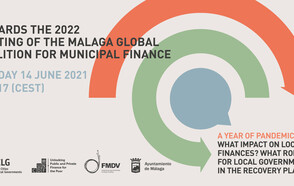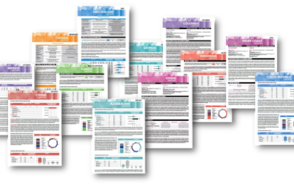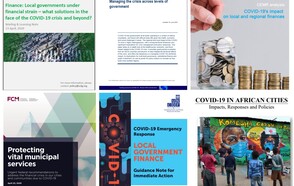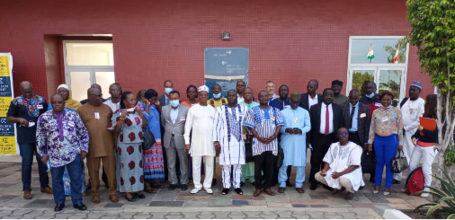
From 11 to 14 October 2021, a regional workshop was held in Cotonou, Benin, to discuss the financing mechanisms of local and regional governments in West Africa. Organised by the National Commission on Local Finance - CONAFIL of Benin, with the support of the GIZ regional project on decentralisation in West Africa, in collaboration with UCLG Africa, UCLG and UNCDF, the event brought together some sixty participants from 8 countries in the region.
The regional workshop was part of a collaborative effort between the GIZ regional project, UCLG Africa, the United Nations Capital Development Fund (UNCDF) and the UCLG-OECD World Observatory on Subnational Government Finance and Investment. The workshop provided an opportunity to explore the national financing mechanisms for subnational governments in 8 countries: Benin, Burkina Faso, Cameroon, Mali, Mauritania, Niger, Senegal and Togo. It was attended by fifty face-to-face and fifteen virtual participants, including mayors, representatives of national associations of local governments, representatives of ministries and departments in charge of decentralisation, taxes, the treasury and public accounts, national local government financing institutions (Subnational Development Banks), as well as regional organisations including the West African Economic and Monetary Union (WAEMU) Commission and the West African Regional Stock Exchange (BRVM), and development partners.
The seminar was opened by Mr. Raphaël D. Akotegnon, Minister of Decentralisation and Local Governance of Benin, who stressed the importance of this workshop as "a key opportunity to deepen the decentralisation dynamics in the region and share experiences on the financing of local authorities". Ms. Birgit Joussen, Head of Cooperation of the Embassy of the Federal Republic of Germany in Benin, also welcome the convening of this workshop, “which will enrich the debate on fiscal decentralisation with the aim of improving local public governance”.
The 4-day workshop was structured around 5 key moments. The representatives of the WAEMU Commission, UCLG Africa and UCLG first presented the state of play of African local government finances, with a particular focus on the situation in the WAEMU area, at the continental level and at the global level.
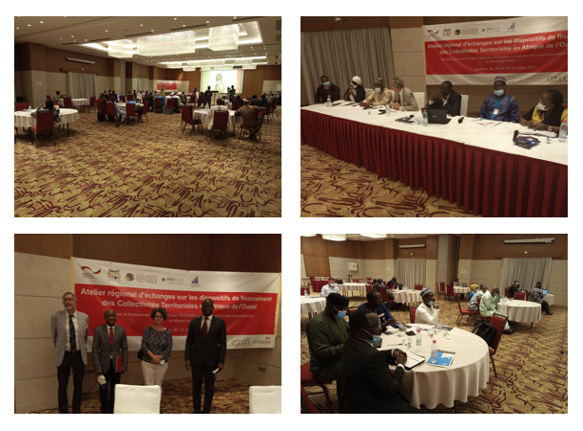
Country delegations were then invited to share their experiences regarding the four main sources of financing for subnational governments: own-source revenues highly dependent on the performance of central government services, own-source revenues highly dependent on the performance of local governments, intergovernmental fiscal transfers and debt.
Based on these discussions, breakout group sessions allowed participants to identify recurring constraints facing local authorities when mobilising these different sources of funding, priority actions to be taken to improve the mobilisation of these resources and the role of the main actors involved in their implementation.
The third day of discussions addressed the issue of fiscal information systems in each country, pointing out the main obstacles to the collection, analysis and public dissemination of local and regional governments' financial data, and how to improve them.
At the end of the workshop, concrete proposals were tabled for consideration by WAEMU bodies and central administrations, as well as recommendations for financial intermediaries and local governments associations, with a view to strengthening local government financing tools and information systems on local finances. In each of the countries, national feedback workshops should be held in the coming months on the initiative of the various delegations to draw on the lessons learned from the week of exchanges, share the recommendations made and set out roadmaps for action.
· Read the report of the workshop excluding annexes (in French)
· Read the article about the event in the local press (in French)
· Visit the website of the World Observatory on Subnational Government Finance and Investment











